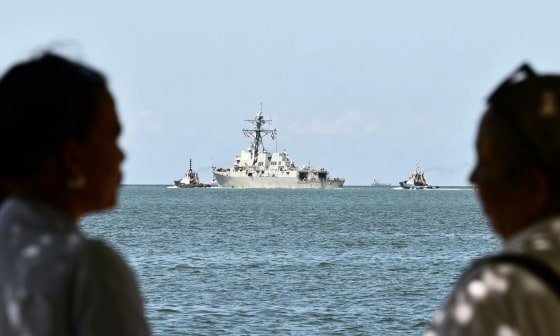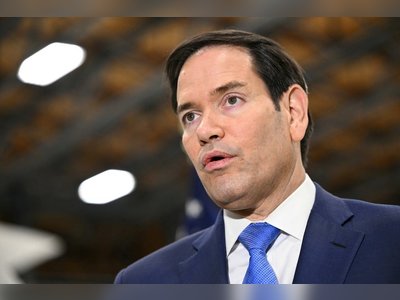
UK Allegedly Suspends Drug-Trafficking Intelligence to US Amid Caribbean Strikes
London reportedly pauses data sharing as concerns mount over legality of US military strikes on suspected narcotics vessels
The United Kingdom has reportedly suspended the transfer of intelligence on suspected drug-trafficking vessels in the Caribbean to the United States, citing fears that its data might enable lethal strikes which London believes may breach international law.
British territories in the region long provided logistics and surveillance in anti-narcotics operations alongside the United States and other partners.
Sources familiar with the matter told media outlets that the freeze began after a series of US military strikes from September onward targeting boats alleged to be carrying drugs.
The strikes resulted in dozens of fatalities and have drawn criticism from the United Nations, which described them as potentially constituting extrajudicial killings.
The UK government declined to confirm the suspension, stating only that it does not comment on intelligence matters and continues to work with the US as a close ally.
US Secretary of State Marco Rubio, speaking after a meeting of G7 foreign ministers, denied the reports of a halt in intelligence sharing, calling such reporting “false” and saying no such issue was raised in talks.
The discord nevertheless underscores tension between the two countries over the Trump administration’s campaign of maritime strikes and its classification of drug-cartel vessels as legitimate military targets.
Legal experts say the UK’s decision reflects mounting concern about the consequences of being complicit in operations that might violate the Law of the Sea or other international humanitarian law provisions.
Critics argue the US is treating suspected smugglers as battlefield combatants without due process, while the US administration maintains it is responding to a national-security threat posed by “narco-terrorists.”
With Britain part of the “Five Eyes” intelligence alliance and long a key partner to US maritime operations in the Caribbean, the move—if confirmed—could mark a significant shift in transatlantic intelligence cooperation and pose fresh strategic dilemmas as drug-trafficking routes adapt and Washington intensifies its regional naval posture.
A spokesman for the UK Prime Minister declared that decisions over such operations are matters for the United States and that legal determinations must rest with competent courts rather than governments.
The White House has not publicly acknowledged any interruption in data sharing, but the dispute has already reignited debate over the proper boundaries of intelligence partnerships when lethal force and international law intersect.
British territories in the region long provided logistics and surveillance in anti-narcotics operations alongside the United States and other partners.
Sources familiar with the matter told media outlets that the freeze began after a series of US military strikes from September onward targeting boats alleged to be carrying drugs.
The strikes resulted in dozens of fatalities and have drawn criticism from the United Nations, which described them as potentially constituting extrajudicial killings.
The UK government declined to confirm the suspension, stating only that it does not comment on intelligence matters and continues to work with the US as a close ally.
US Secretary of State Marco Rubio, speaking after a meeting of G7 foreign ministers, denied the reports of a halt in intelligence sharing, calling such reporting “false” and saying no such issue was raised in talks.
The discord nevertheless underscores tension between the two countries over the Trump administration’s campaign of maritime strikes and its classification of drug-cartel vessels as legitimate military targets.
Legal experts say the UK’s decision reflects mounting concern about the consequences of being complicit in operations that might violate the Law of the Sea or other international humanitarian law provisions.
Critics argue the US is treating suspected smugglers as battlefield combatants without due process, while the US administration maintains it is responding to a national-security threat posed by “narco-terrorists.”
With Britain part of the “Five Eyes” intelligence alliance and long a key partner to US maritime operations in the Caribbean, the move—if confirmed—could mark a significant shift in transatlantic intelligence cooperation and pose fresh strategic dilemmas as drug-trafficking routes adapt and Washington intensifies its regional naval posture.
A spokesman for the UK Prime Minister declared that decisions over such operations are matters for the United States and that legal determinations must rest with competent courts rather than governments.
The White House has not publicly acknowledged any interruption in data sharing, but the dispute has already reignited debate over the proper boundaries of intelligence partnerships when lethal force and international law intersect.









